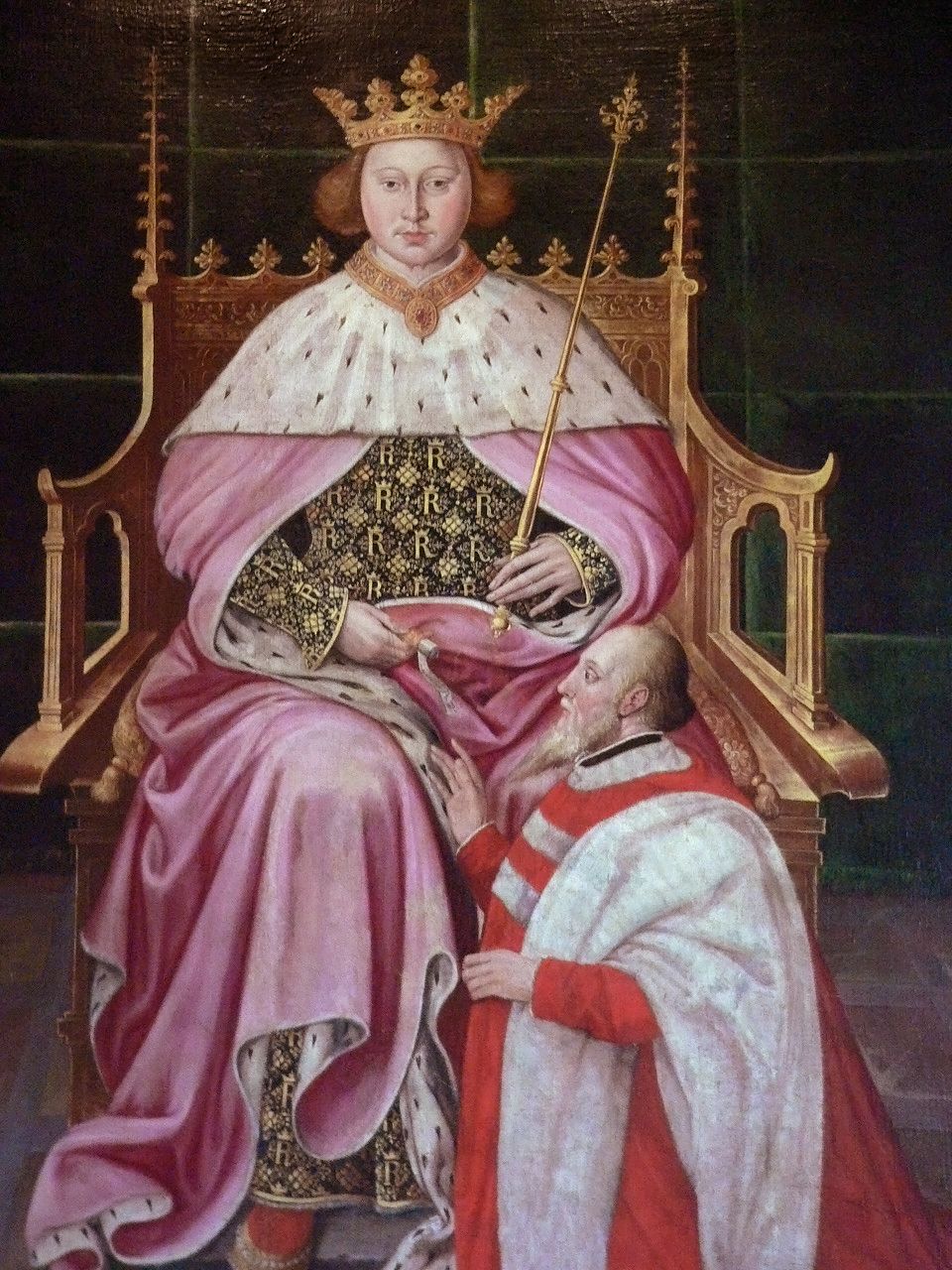 |
"Why do histories, Shakespeare? Doesn't seem like a traditional genre for theatre."
"Even if you had a good reason, why write so many?"
"What kind of reaction were you trying to get out of the people?"
 C'mon Erik, I thought. This is Shakespeare. There has to be a reason why Shakespeare has chosen the medium of history to present a play. Maybe it is that he finds something sacred about remembering and appreciating the past, or maybe he has a strange fascination with Kings (ever notice how there always seems to be one in every play?). Perhaps there was a demand for it, and he found a way to work it in his own style. I want to find out what motive he had. It must have been powerful, because Richard II is considered as only a part of the larger work of one History-- along with Henry IV part 1, Henry IV part 2, and Henry V. Hmm.
C'mon Erik, I thought. This is Shakespeare. There has to be a reason why Shakespeare has chosen the medium of history to present a play. Maybe it is that he finds something sacred about remembering and appreciating the past, or maybe he has a strange fascination with Kings (ever notice how there always seems to be one in every play?). Perhaps there was a demand for it, and he found a way to work it in his own style. I want to find out what motive he had. It must have been powerful, because Richard II is considered as only a part of the larger work of one History-- along with Henry IV part 1, Henry IV part 2, and Henry V. Hmm.My second reaction, looking at the text, is wondering about why he chose to write this play in nearly all verse, as opposed to other plays. Would this result in more or less problems for translation of Shakespeare into other languages?
So, I decided to do a little research. It turns out that La Universidad de Alicante, Spain, has a department of English Philology that has compiled over 500 translations of Shakespeare into Spanish from the late 1700s until today. Richard II has been translated significantly at least 7 times since 1870. How cool would it be to do a comparative analysis of the 7 translations (the last one ending in 1998) to determine how the Spanish language itself has evolved in the last century? So many questions...



2 comentarios:
...maybe he has a knack for finding scandal. Sometimes real life is crazier than anything we could come up with on our own! His fiction brings out human flaws, and what else better to uncover the nature of humanity but our own history?
That is a really neat thought that I will certainly dive deeper into. Julius Caesar (that is the play you are doing, right?) seems like it could have certainly been written with that purpose in mind... I really like the speeches by Brutus and Marc Antony after the death of Caesar, and I think that reflects exactly what you are saying, now that I think about it. Have you read those yet? Oh, they are so good.
Post a Comment